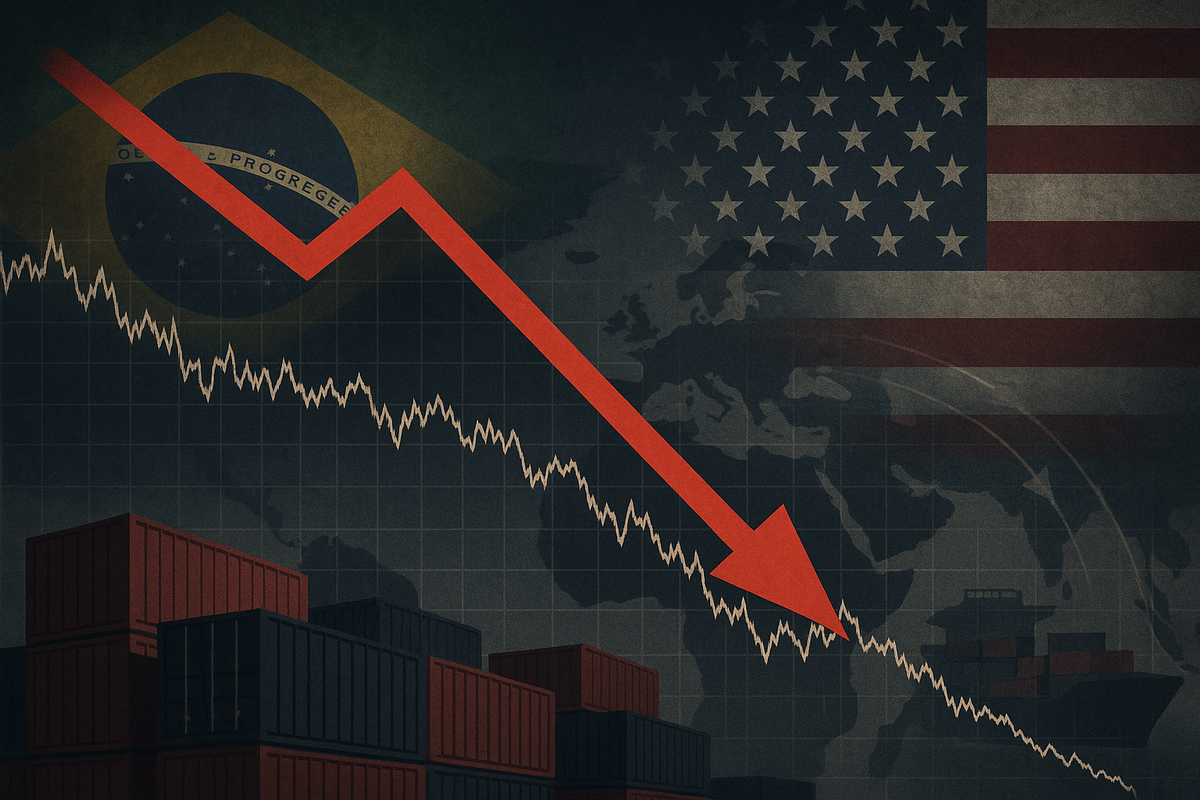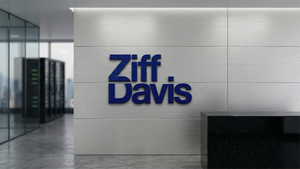
São Paulo, Brazil – September 23, 2025 – Shares of BRBI BR Partners S.A. (B3: BRBI11), a prominent Brazilian investment bank, experienced a dramatic downturn today, closing down approximately -27.08%. The precipitous drop sent shockwaves through the market, with initial analyses pointing to a significant geopolitical announcement rather than any internal company-specific news as the primary catalyst. This sudden market movement underscores the fragility of investor sentiment in the face of international economic tensions.
The sharp decline in BRBI's stock price highlights the immediate and far-reaching impact of global political rhetoric on emerging market equities. Investors are now grappling with increased uncertainty regarding Brazil's economic outlook, particularly as it relates to its trade relationships with major global partners. The event serves as a stark reminder of how external factors can swiftly reshape market valuations and investor confidence.
Geopolitical Tensions Spark Market Turmoil for BRBI
The significant sell-off in BRBI's shares appears to stem directly from a pivotal announcement made earlier today by U.S. President Donald Trump at the United Nations General Assembly. President Trump declared that "Brazil now faces major tariffs" in response to alleged interference in American citizens' rights and freedoms. This unexpected and forceful statement immediately triggered widespread concern among investors, who began to re-evaluate the risk profile of Brazilian companies.
BRBI BR Partners S.A. (B3: BRBI11), as a leading investment bank deeply embedded in Brazil's financial ecosystem, is particularly susceptible to shifts in economic sentiment and international trade relations. While the company itself had no direct negative news released on September 23, 2025, the broader implications of potential tariffs on Brazil created an environment of heightened risk aversion. The market reacted swiftly, with a significant portion of the decline occurring in pre-market trading, reflecting an immediate flight from Brazilian assets.
Interestingly, this sharp decline occurred despite a generally positive day for the broader Brazilian stock market, with the Ibovespa gaining 1.09%, and global shares also showing positive momentum. This divergence strongly suggests that BRBI's plummet was an isolated event driven by specific external factors affecting Brazil, rather than a reflection of a wider market downturn. Company-specific news, such as its Q2 2025 earnings reported in August, which showed a slight year-over-year decrease in revenues and net income but an increase from the previous quarter, were not recent enough to explain such a sudden and severe drop. Furthermore, analyst ratings, including a "buy" recommendation just days prior, did not indicate any fundamental weakness that would warrant such a dramatic repricing.
Ripple Effects: Who Wins and Who Loses?
The tariff threat against Brazil, and the subsequent market reaction seen in BRBI's stock, is poised to create a complex web of winners and losers across various sectors and potentially even within the financial industry itself. Companies with significant exposure to international trade, particularly with the United States, are likely to face immediate headwinds. Exporters of commodities, agricultural products, and manufactured goods from Brazil could see their profit margins squeezed and their competitiveness diminished by the imposition of new tariffs, potentially leading to reduced demand and market share.
For financial institutions like BRBI (B3: BRBI11), which derive substantial revenue from capital markets, mergers and acquisitions advisory, and wealth management, increased economic uncertainty can lead to a slowdown in deal activity and investment flows. Companies planning initial public offerings (IPOs) or seeking to raise capital may postpone their plans, impacting the pipeline for investment banks. Conversely, some domestic-focused companies with minimal international trade exposure might be less affected, or could even see a relative advantage if international competition diminishes due to tariffs, though overall economic slowdown would still be a concern.
In the short term, companies that offer hedging strategies or financial instruments to mitigate currency and trade risks might see increased demand for their services. Furthermore, international investors might shift their focus away from Brazilian equities, potentially benefiting other emerging markets perceived as more stable or less exposed to geopolitical risks. However, the overall sentiment for Brazilian assets is likely to remain subdued until there is greater clarity on the tariff situation, potentially leading to a broader repricing of risk across the Brazilian corporate landscape.
Broader Implications and Industry Impact
The announcement of potential tariffs on Brazil extends far beyond the immediate impact on individual stock prices; it signals a significant shift in international trade relations that could have profound implications for the entire Brazilian economy and its financial industry. This event fits into a broader trend of increasing protectionism and geopolitical tensions observed globally, where trade policies are increasingly used as leverage in international disputes. For Brazil, a major global exporter of agricultural products and raw materials, such tariffs could disrupt established supply chains, force a re-evaluation of trade partnerships, and potentially lead to economic contraction.
Within the financial industry, the immediate effect is a surge in volatility and a re-evaluation of risk. Investment banks like BRBI (B3: BRBI11) thrive on stability and predictable market conditions. A period of prolonged uncertainty can deter foreign direct investment, reduce the appetite for mergers and acquisitions, and slow down capital market activities, all of which are core revenue streams. The high interest rate environment already prevalent in Brazil, with the Selic rate at a two-decade high of 15%, has already been a headwind for capital market issuances and M&A. The addition of tariff threats exacerbates this challenging landscape, potentially delaying the recovery of these key business segments.
Historically, similar events of trade disputes have led to capital flight from affected nations and a depreciation of their currencies, making imports more expensive and potentially fueling inflation. Regulatory bodies and policymakers in Brazil will likely face immense pressure to respond, either through diplomatic efforts to de-escalate tensions or by implementing domestic policies to cushion the economic blow. The long-term impact could involve a strategic pivot for Brazilian companies towards diversifying their trade partners and strengthening domestic demand to reduce reliance on potentially volatile international markets.
What to Watch For Next
The immediate aftermath of President Trump's tariff announcement will be crucial in determining the short-term trajectory for BRBI (B3: BRBI11) and the broader Brazilian market. Investors should closely monitor any official responses from the Brazilian government, including diplomatic efforts to address the alleged interference and negotiate a resolution to the tariff threat. The nature and severity of the proposed tariffs, once fully detailed, will also provide critical insights into the potential economic damage.
In the coming weeks and months, attention will turn to how Brazilian companies, particularly those with significant international exposure, begin to adapt their strategies. This could include exploring new export markets, re-evaluating supply chains, or increasing focus on domestic consumption. For BRBI, a sustained period of economic uncertainty could necessitate strategic pivots in its service offerings, potentially emphasizing wealth management or advisory services that are less sensitive to capital market volatility. The resilience of Brazil's financial system and its ability to weather this geopolitical storm will be a key indicator.
Potential scenarios range from a swift de-escalation of tensions, leading to a recovery in investor confidence, to a prolonged trade dispute that could significantly impact Brazil's economic growth. Investors should also watch for any shifts in analyst sentiment or credit ratings for Brazilian companies, as these will reflect updated risk assessments. The market's reaction to future economic data releases from Brazil will also be critical in gauging the real-world impact of these geopolitical events.
Conclusion: Navigating a New Era of Uncertainty
The dramatic -27.08% decline in BRBI BR Partners S.A. (B3: BRBI11) stock on September 23, 2025, serves as a potent reminder of the interconnectedness of global financial markets and the significant influence of geopolitical events. While BRBI's underlying financial health and strategic positioning remain robust, the immediate trigger for this sell-off was undeniably external – the threat of "major tariffs" on Brazil from the United States. This event underscores that even fundamentally sound companies can experience severe market corrections when faced with sudden and adverse international economic developments.
Moving forward, the Brazilian market, and particularly its financial sector, will be navigating a new era of uncertainty. The key takeaway for investors is the heightened importance of geopolitical risk assessment in investment decisions. While BRBI has demonstrated resilience in challenging macroeconomic environments, the added layer of trade friction will test its adaptability and the broader economy's capacity to absorb such shocks. The market's recovery will hinge on a clear resolution to the tariff dispute and a restoration of confidence in Brazil's international trade relations.
Investors should closely watch for diplomatic developments, the specific details of any tariffs imposed, and the strategic responses from both the Brazilian government and its corporations. The ability of companies like BRBI to pivot and innovate in a potentially more challenging trade landscape will be crucial. This period calls for a cautious yet informed approach, with a keen eye on both macroeconomic indicators and the evolving geopolitical narrative.
This content is intended for informational purposes only and is not financial advice





